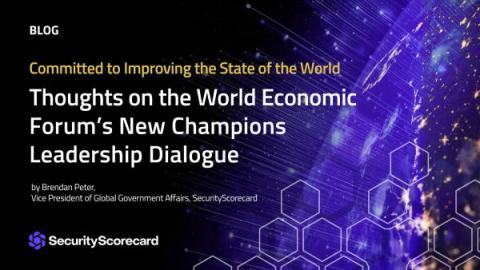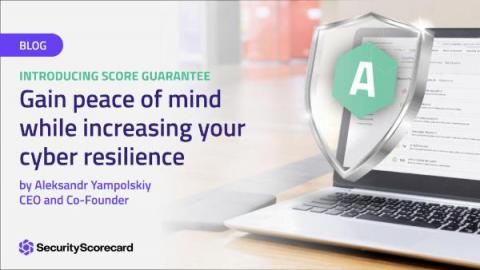Committed to Improving the State of the World: Thoughts on the World Economic Forum's New Champions Leadership Dialogue
Following CEO and Co-Founder Aleksandr Yampolskiy’s attendance at Davos, and SecurityScorecard’s subsequent visit to Geneva to meet with world leaders at WEF Headquarters, Alex spoke this week to another community of WEF members near our headquarters in New York City during the Forum’s New Champions Leadership Dialogue. New Champions companies are mid-sized organizations transforming industries through new business models and market disruptions.









